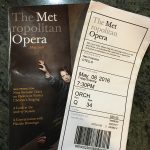In Act II of Othello and I we come away with one thing that is for certain; Iago is without a doubt the villain and antagonist of this story. He manipulates all characters of the play for his need of revenge. We first believe that he is just jealous that Othello appointed Cassio as lieutenant but later we learn the real reason he is going through all of this trouble. He is doing this because he has suspicions of Othello to have slept with his wife. The other conflict that is taking place in this play is that Othello has married a senator’s daughter. You may ask yourself why that is such a problem right? The only reason why this is an issue is because Othello is black. He is a warrior that is in power but he will not accept that due to the color of his skin. This shows that racism has been around a very long time. Iago manipulates Rodrigo to make it seem like he is trying to help him get Desdemona but in reality he has a whole different plan. You see his plan in his soliloquy where he says he wants it to seem like Desdemona is cheating on Othello with Cassio and he wants to steal money from Rodrigo. He also manipulates his wife to speak on behalf of Cassio to persuade her to become closer to Cassio.
It was interesting to see that Othello was accused of using “charms” on Desdemona to make her fall in love with him. She shoots that down and says she married him under her own free will. Brabantio has such a problem with Othello due to his skin color but he just disregards the work he does on the battlefield, which he should get a lot of respect for. He drowned the Turks and that is a cause for celebration. He is valued as a great warrior but it seems that is just not enough in the eyes of the senator. He does not want his daughter to love a man that is black. You are able to see that blacks are viewed a certain way, even Iago says that Desdemona is “making the beast with two backs.” He convinces the senator to search for the daughter and really convinced him that it was a problem due to the vulgar way he spoke about Othello and his daughter.
We see the direction that Iago plan is going in and the more I read this play the more I dislike Iago. He is ruining the lives of all in the play based strictly on his own jealousy. He has no prove of the other accusation of that Othello slept with his wife either. He tries to shame Cassio by getting him very drunk causing him to do an act that he would not normally do and he is doing this all to take down Othello. While reading this it made me think of a few questions:
1)Why do you think that Brabantio has such a problem with Othello marrying his daughter who claims she loves him, when he doesn’t have an issue with him being a powerful member of society? It is very different from what we have read in the past because warriors are very well respected.
2)Do you believe Iago main motive to destroy Othello is because of the promotion he gave to Cassio or because he believes he slept with his wife, Emilia?
3)Why do you believe Iago always talks about women in a negative, derogatory way? Do you believe the play agrees with the way he speaks about women?
4)What do you predict will happen at the end of the play when everyone finds out about Iago’s plan? Do you believe Iago will be punished and put to justice for his lies?



